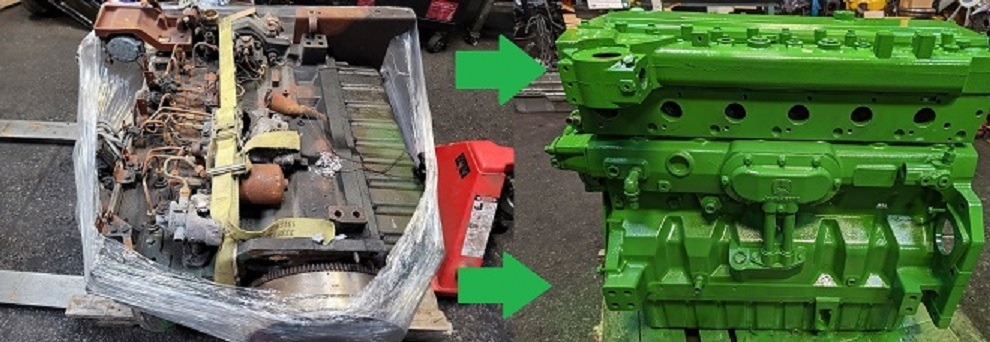Enviromental Impact

The Environmental Benefits of Remanufactured Engines
When considering eco-friendly automotive options, remanufactured engines may not be the first thing that comes to mind. However, choosing remanufactured automotive parts can have a profound impact on the environment. From reducing waste to conserving resources, these engines play a crucial role in fostering a sustainable economy. Let’s explore the numerous environmental benefits of remanufactured engines.
Reduces Manufacturing Air Pollution
The process of remanufacturing engines significantly reduces air pollution compared to producing new engines. Manufacturing new engines requires vast amounts of raw materials such as iron, aluminum, and copper. This not only depletes natural resources but also involves energy-intensive processes that release significant greenhouse gases into the atmosphere. By reusing and refurbishing existing engines, the need for new materials is minimized, thereby reducing the carbon footprint associated with mining and refining these resources.
Read more about reducing air pollution through remanufacturing.
Eliminates Landfill Waste
Automotive waste is a major contributor to landfill overflow, but remanufacturing engines addresses this issue effectively. By reconditioning and reusing engine components, the volume of non-biodegradable waste destined for landfills is greatly diminished. This process not only conserves valuable landfill space but also reduces the risk of soil and water contamination from hazardous substances that can leach from discarded automotive parts. Essentially, remanufacturing promotes a cycle of reuse and recycling, vital for maintaining environmental health.
Learn more about waste management and recycling in the automotive industry.
Provides Cleaner Automotive Performance
One of the significant benefits of remanufactured engines is their contribution to cleaner automotive performance. Updating older engines with newer, more efficient technologies can lead to marked improvements in fuel efficiency and a reduction in the emission of harmful pollutants such as nitrogen oxides, carbon monoxide, and particulates. This not only benefits the environment but also enhances the longevity and performance of older vehicles, making them more eco-friendly and reducing their overall environmental impact.
Discover how remanufactured engines improve automotive efficiency.
Supports a Circular Economy
The concept of a circular economy revolves around minimizing waste and making the most of available resources. Remanufactured engines epitomize this principle by extending the life cycle of automotive parts. Rather than discarding old engines, remanufacturing transforms them into high-quality, functional components. This approach not only reduces the environmental footprint of manufacturing but also promotes economic sustainability by creating jobs and reducing costs associated with producing new engines from scratch.
Explore the benefits of remanufacturing in a circular economy.
Conclusion
The environmental benefits of remanufactured engines are substantial, extending well beyond cost savings. By reducing manufacturing air pollution, eliminating landfill waste, providing cleaner automotive performance, and supporting a circular economy, remanufactured engines play a pivotal role in fostering a healthier planet. To contribute to a more sustainable automotive industry and explore a wide range of remanufactured auto engines, visit Gearhead Engines today.


